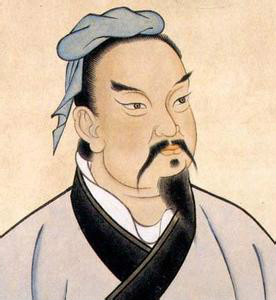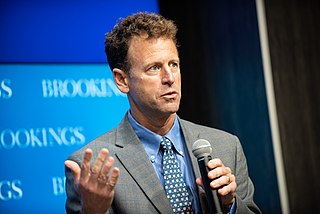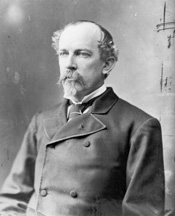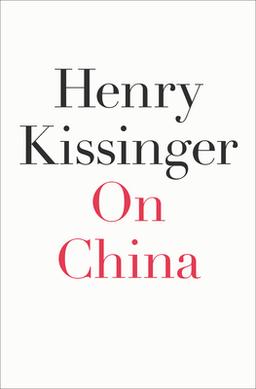Related Research Articles

Sun Tzu was a Chinese military general, strategist, philosopher, and writer who lived during the Eastern Zhou period. Sun Tzu is traditionally credited as the author of The Art of War, an influential work of military strategy that has affected both Western and East Asian philosophy and military thought. Sun Tzu is revered in Chinese and East Asian culture as a legendary historical and military figure. His birth name was Sun Wu and he was known outside of his family by his courtesy name Changqing. The name Sun Tzu—by which he is more popularly known—is an honorific which means "Master Sun".

The Art of War is an ancient Chinese military treatise dating from the late Spring and Autumn period. The work, which is attributed to the ancient Chinese military strategist Sun Tzu, is composed of 13 chapters. Each one is devoted to a different set of skills or art related to warfare and how it applies to military strategy and tactics. For almost 1,500 years, it was the lead text in an anthology that was formalized as the Seven Military Classics by Emperor Shenzong of Song in 1080. The Art of War remains the most influential strategy text in East Asian warfare, has influenced both East Asian and Western military theory and thinking, and has found a variety of applications in myriad competitive non-military endeavors across the modern world including espionage, culture, politics, business, and sports.

International relations is an academic discipline. In a broader sense, the study of IR, in addition to multilateral relations, concerns all activities among states—such as war, diplomacy, trade, and foreign policy—as well as relations with and among other international actors, such as intergovernmental organizations (IGOs), international nongovernmental organizations (INGOs), international legal bodies, and multinational corporations (MNCs).

In politics, hard power is the use of military and economic means to influence the behavior or interests of other political bodies. This form of political power is often aggressive (coercion), and is most immediately effective when imposed by one political body upon another of less military and/or economic power. Hard power contrasts with soft power, which comes from diplomacy, culture and history.
Diplomatic history deals with the history of international relations between states. Diplomatic history can be different from international relations in that the former can concern itself with the foreign policy of one state while the latter deals with relations between two or more states. Diplomatic history tends to be more concerned with the history of diplomacy, but international relations concern more with current events and creating a model intended to shed explanatory light on international politics.

Edward Nicolae Luttwak is an American author known for his works on grand strategy, military strategy, geoeconomics, military history, and international relations. He is best known for being the author of Coup d'État: A Practical Handbook. His book Strategy: The Logic of War and Peace, also published in Chinese, Russian and ten other languages, is widely used at war colleges around the world. His books are currently published in 29 languages besides English.

Kenneth Michael Pollack is an American former CIA intelligence analyst and expert on Middle East politics and military affairs. He has served on the National Security Council staff and has written several articles and books on international relations. Currently, he is a resident scholar at the American Enterprise Institute, "where he works on Middle Eastern political-military affairs, focusing in particular on Iran, Iraq, Saudi Arabia, and the Gulf countries. Before that he was Senior Fellow at the Saban Center for Middle East Policy at the Brookings Institution and a senior advisor at Albright Stonebridge Group, a global business strategy firm.
"King Cotton" is a slogan that summarized the strategy used before the American Civil War by secessionists in the southern states to claim the feasibility of secession and to prove there was no need to fear a war with the northern states. The theory held that control over cotton exports would make a proposed independent Confederacy economically prosperous, would ruin the textile industry of New England, and—most importantly—would force the United Kingdom and perhaps France to support the Confederacy militarily because their industrial economies depended on Southern cotton.

Michael Edward O'Hanlon is an American policy analyst currently serving as director of research and senior fellow of the foreign policy program at the Brookings Institution. He began his career as a budget analyst in the defense field.

Matthew Calbraith Butler was a Confederate soldier, an American military commander, attorney and politician, and slaveholder from South Carolina. He served as a major general in the Confederate States Army during the American Civil War, reconstruction era three-term United States Senator, and a major general in the United States Army during the Spanish–American War.

Battle Cry of Freedom: The Civil War Era is a 1988 book on the American Civil War, written by James M. McPherson. It is the sixth volume of the Oxford History of the United States series. An abridged, illustrated version was published in 2003. The book won the 1989 Pulitzer Prize for History.
Rear Admiral Joseph Caldwell Wylie, Jr., USN,, was an American strategic theorist, author, and US Naval officer. Wylie is best known for writing Military Strategy: A General Theory of Power Control.

On China is a 2011 non-fiction book by Henry Kissinger, former National Security Adviser and United States Secretary of State. The book is part an effort to make sense of China's strategy in diplomacy and foreign policy over 3000 years and part an attempt to provide an authentic insight on Chinese Communist Party leaders. Kissinger, considered one of the most famous diplomats of the 20th century, played an integral role in developing the relationship between the United States and the People's Republic of China during the Nixon administration, which culminated in Nixon's 1972 visit to China.

John Curtis Perry also known as John Perry is an East Asian and Oceanic studies professor and historian. He is the Henry Willard Denison Professor Emeritus of History at the Fletcher School of Law and Diplomacy, Tufts University. He was also the director of that school's Maritime Studies program and founding president of the Institute for Global Maritime Studies, until his retirement in 2014.

David S. Painter is an associate professor of international history at Georgetown University. He is a leading scholar of the Cold War and United States foreign policy during the 20th century, with particular emphasis on their relation to oil.

This article covers worldwide diplomacy and, more generally, the international relations of the great powers from 1814 to 1919. This era covers the period from the end of the Napoleonic Wars and the Congress of Vienna (1814–1815), to the end of the First World War and the Paris Peace Conference (1919–1920).

Alan Michael Wachman was a scholar of East Asian politics and international relations, specializing in cross-strait relations and Sino-U.S. relations. He was a professor of international politics at The Fletcher School of Law and Diplomacy, Tufts University. Previously he had been the co-director of the Johns Hopkins University-Nanjing University Center for Chinese and American Studies in the PRC, and the president of China Institute in America.
The following are some of the books and papers which have been written concerning William Howard Taft, the 27th president of the United States:

The diplomacy of the American Civil War involved the relations of the United States and the Confederate States of America with the major world powers during the American Civil War of 1861–1865. The United States prevented other powers from recognizing the Confederacy, which counted heavily on Britain and France to enter the war on its side to maintain their supply of cotton and to weaken a growing opponent. Every nation was officially neutral throughout the war, and none formally recognized the Confederacy.
This bibliography of Theodore Roosevelt is a list of published works about Theodore Roosevelt, the 26th president of the United States. The titles are selected from tens of thousands of publications about him.
References
- ↑ Fox, Amos C. "Military History for the Modern Strategist: America's Major Wars Since 1861. By Michael O'Hanlon. Washington, DC: Brookings Institution Press, 2023". Journal of Strategic Security .
- ↑ Burton, Fletcher M. (May 2023). "Military History for the Modern Strategist". American Diplomacy. University of North Carolina.
- ↑ Axel, Michael (1 July 2023). "Book Reviews". U.S. Naval Institute Proceedings. 149 (7): 1145.
- ↑ Story, Wm. Shane (2024). "Review of MILITARY HISTORY FOR THE MODERN STRATEGIST: AMERICA'S MAJOR WARS SINCE 1861". Army History (130): 45–46. ISSN 1546-5330.